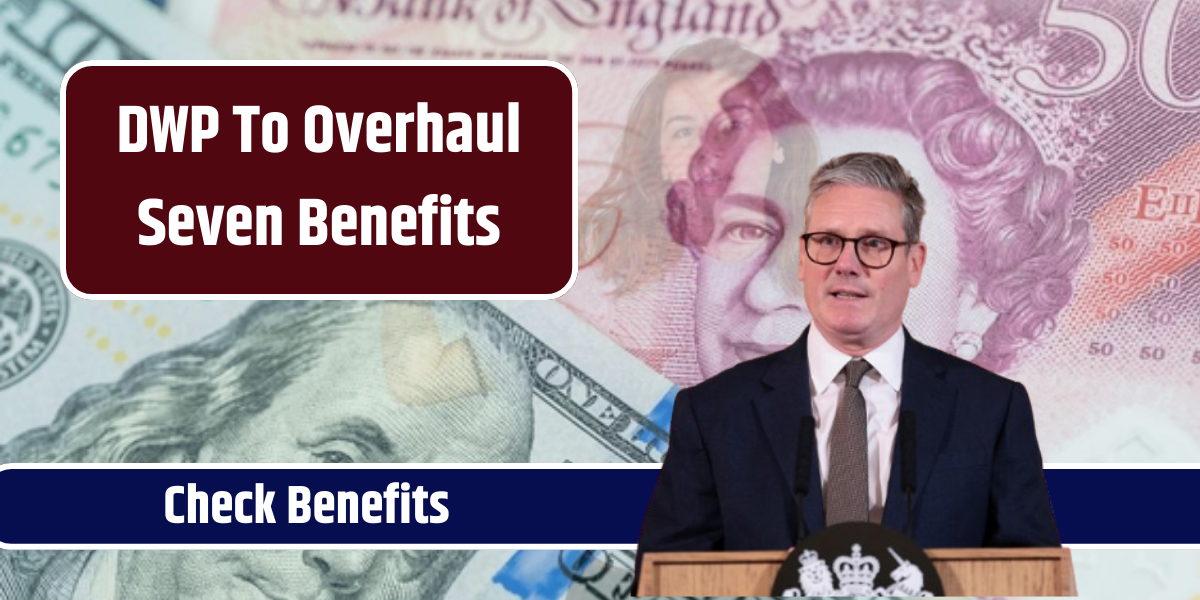The Department for Work and Pensions (DWP) is rolling out major reforms to the benefits system starting this April. With changes designed to combat inflation and simplify support systems, claimants can expect increases in payment rates and a gradual shift toward Universal Credit (UC). Here’s a detailed look at what these updates mean for you.
Transition to Universal Credit
One of the most significant changes is the replacement of Tax Credits with Universal Credit, effective April 5. By the end of the month, all claimants are expected to have transitioned to UC. Along with this shift, UC standard allowances will see notable increases:
| Category | Current Rate | New Rate |
|---|---|---|
| Single under 25 | £311.68 | £316.98 |
| Single 25 and over | £393.45 | £400.14 |
| Joint under 25 | £489.23 | £497.55 |
| Joint 25 and over | £617.60 | £628.10 |
Additionally, various UC components will increase. For example:
- Limited Capability for Work (LCW): Higher rates to support claimants unable to work due to health issues.
- Childcare Support: Now rising to £1,031.88 for one child and £1,768.94 for two or more children.
- Carer Support: Enhanced rates for those caring for disabled individuals.
Child Elements Updates
Child-related payments will see adjustments based on birth dates and disability status:
| Child Category | Current Rate | New Rate |
|---|---|---|
| First child (pre-April 2017) | £333.33 | £339.00 |
| First/Second child (post-April 2017) | £287.92 | £292.81 |
| Disabled child (lower rate) | £156.11 | £158.76 |
| Disabled child (higher rate) | £487.58 | £495.87 |
Attendance Allowance Enhancements
Attendance Allowance, a benefit for individuals over the state pension age needing personal care, will also increase:
| Rate | Current Amount | New Amount |
|---|---|---|
| Lower | £72.65 | £73.90 |
| Higher | £108.55 | £110.40 |
Disability Living Allowance (DLA) Updates
For claimants under 16 in England, Wales, and Scotland, the Disability Living Allowance (DLA) rates for care and mobility components will rise:
| Component | Rate Type | Current Rate | New Rate |
|---|---|---|---|
| Care | Higher | £108.55 | £110.40 |
| Care | Middle | £72.65 | £73.90 |
| Care | Lower | £28.70 | £29.20 |
| Mobility | Higher | £75.75 | £77.05 |
| Mobility | Lower | £28.70 | £29.20 |
Personal Independence Payment (PIP) Increases
The Personal Independence Payment (PIP) is set to rise across both daily living and mobility components:
| Component | Rate | Current Rate | New Rate |
|---|---|---|---|
| Daily Living | Lower | £72.65 | £73.90 |
| Daily Living | Higher | £108.55 | £110.40 |
| Mobility | Lower | £28.70 | £29.20 |
| Mobility | Higher | £75.75 | £77.05 |
Pension Adjustments
State pensions and Pension Credit guarantees will experience significant increases this April:
| Pension Type | Current Rate | New Rate |
|---|---|---|
| State pension (full new) | £221.20 | £230.25 |
| State pension (basic old) | £169.50 | £176.45 |
| Pension Credit (single) | £218.15 | £227.10 |
| Pension Credit (couples) | £332.95 | £344.85 |
These updates reflect the government’s commitment to modernizing the benefits system and addressing rising living costs. With higher payment rates and simplified processes like the Universal Credit shift, claimants should find the new structure more supportive and accessible.
What is Universal Credit?
Universal Credit is a consolidated benefits system replacing various individual benefits, including Tax Credits, with a single monthly payment.
Who qualifies for Attendance Allowance?
Individuals over the state pension age requiring personal care due to a disability or illness may qualify for Attendance Allowance.
Are these increases permanent?
These rates are part of the annual review and are subject to adjustments based on inflation and other economic factors.










